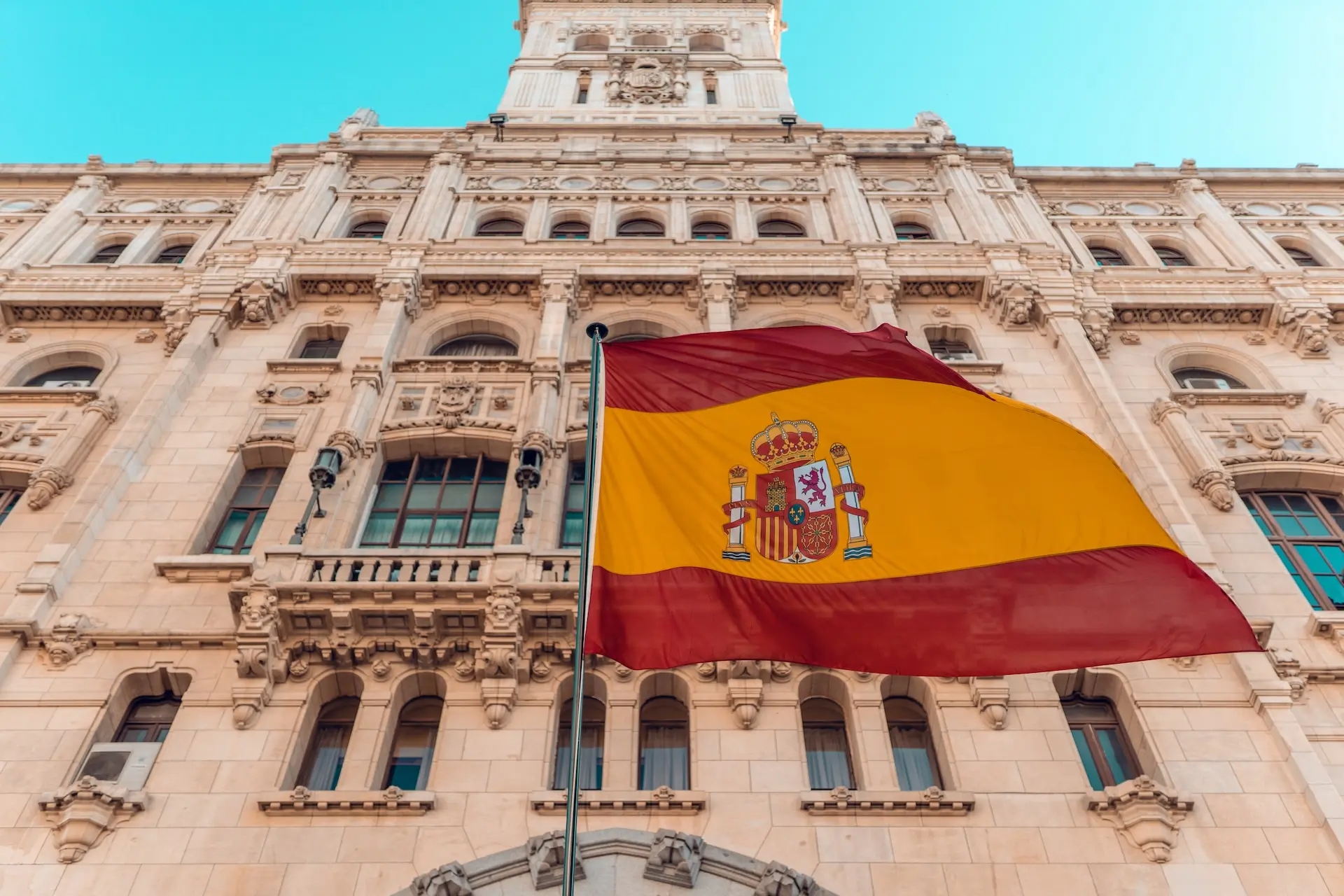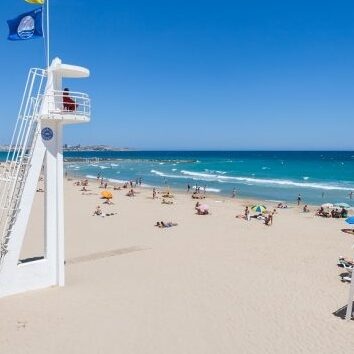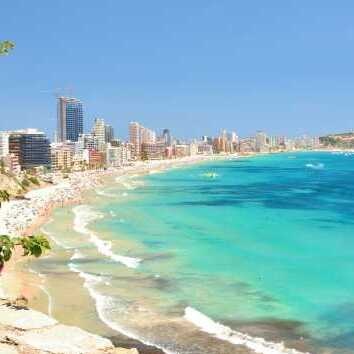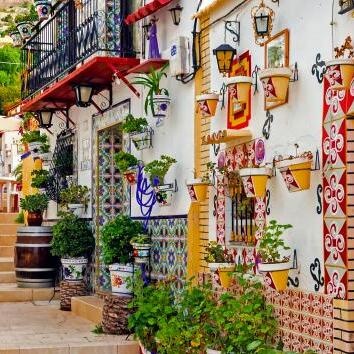
30 Essential Spanish Phrases to Learn for Your Alicante Trip
Alicante, a vibrant gem on Spain’s Costa Blanca, is known for more than just its sunny beaches and historical landmarks. To truly dive into the heart of its culture, picking up a bit of Spanish can go a long way. Many locals may not speak English fluently, particularly in smaller markets, neighborhood cafes, or family-owned shops. Knowing a few basic phrases can bridge the gap, leading to smoother conversations, friendlier interactions, and memorable moments that connect you with Alicante’s warm community.
Common Greetings and Courtesies
Greeting someone in Spanish can be a great icebreaker. In Spain, courtesy is highly valued, so knowing a few polite phrases will surely earn you a smile.
-
Hola – Hello
Pronunciation: (oh-lah)
Start with this universal greeting in any casual encounter, from shops to cafes. -
Buenos días / Buenas tardes / Buenas noches – Good morning / Good afternoon / Good evening
Pronunciation: (bweh-nohs dee-ahs / bweh-nahs tar-des / bweh-nahs noh-ches)
Use the time-appropriate phrase to show respect and attentiveness. -
Por favor / Gracias / De nada – Please / Thank you / You’re welcome
Pronunciation: (por fah-vor / grah-see-ahs / deh nah-dah)
Essential phrases for any polite exchange. -
Perdón / Disculpe – Excuse me / Pardon me
Pronunciation: (pehr-dohn / dees-kool-peh)
Use “Perdón” for bumping into someone, while “Disculpe” is more formal when requesting help from a stranger.
Navigating Alicante with Ease
Getting around can be easy if you’re equipped with the right phrases, especially if you’re exploring beyond the main tourist areas.
-
¿Dónde está…? – Where is…?
Pronunciation: (dohn-deh ehs-tah)
This is a handy phrase for finding locations. Try “¿Dónde está la playa?” for “Where is the beach?” -
A la derecha / A la izquierda / Todo recto – To the right / To the left / Straight ahead
Pronunciation: (ah lah deh-reh-chah / ah lah ees-kee-ehr-dah / toh-doh rehk-toh)
You’ll often hear these words while following directions. -
¿Cuánto cuesta? – How much does it cost?
Pronunciation: (kwahn-toh kwes-tah)
An essential question for shopping or checking menu prices. -
¿Hay algún restaurante cerca? – Is there a restaurant nearby?
Pronunciation: (ay ahl-goon rehs-tah-rahn-teh sehr-kah)
A useful question to find a place to eat while exploring.
Dining in Alicante Like a Local
Eating out is a fantastic way to soak in the local culture. Here are a few key phrases to enhance your dining experience.
-
Una mesa para dos, por favor – A table for two, please
Pronunciation: (oo-nah meh-sah pah-rah dos, por fah-vor)
Use this when you enter a restaurant and need seating. -
¿Qué recomienda? – What do you recommend?
Pronunciation: (keh reh-koh-mee-en-dah)
Ask the server for their recommendation to explore authentic Spanish dishes. -
Quisiera… – I would like…
Pronunciation: (kee-see-eh-rah)
A polite way to order. For example, “Quisiera una paella” (I would like a paella). -
La cuenta, por favor – The bill, please
Pronunciation: (lah kwen-tah por fah-vor)
Use this when you’re ready to pay. -
¿Tiene opciones vegetarianas? – Do you have vegetarian options?
Pronunciation: (tee-eh-neh op-see-oh-nes veh-heh-tah-ree-ah-nas)
This is helpful if you’re looking for plant-based meals.
Shopping and Local Markets
Exploring local markets in Alicante is a treat, and knowing a few phrases can make shopping more enjoyable.
-
¿Puedo probarlo? – Can I try it on?
Pronunciation: (pweh-doh proh-bar-loh)
Useful in clothing shops when you’re interested in trying items. -
Voy a llevarlo – I’ll take it
Pronunciation: (voy ah ye-var-loh)
Use this phrase when you’ve decided to make a purchase. -
¿Aceptan tarjetas de crédito? – Do you accept credit cards?
Pronunciation: (ah-sep-tan tar-heh-tas deh kre-dee-toh)
Some markets may only accept cash, so it’s helpful to ask. -
Solo estoy mirando – I’m just looking
Pronunciation: (soh-loh ehs-toy mee-rahn-doh)
This is a polite way to indicate that you’re browsing.
Handling Emergencies
In any trip, safety is key. Knowing these phrases can help in times of need.
|
English |
Español |
|
Help! |
¡Ayuda! |
|
I need a doctor |
Necesito un médico |
|
I’ve lost my passport |
He perdido mi pasaporte |
|
Call the police |
Llama a la policía |
|
There’s a fire |
Hay un incendio |
|
I lost my friend |
Perdí a mi amigo/a |
These phrases are essential for handling emergencies while traveling. Knowing how to ask for help, report a lost passport, or call for medical assistance can make a significant difference in stressful situations. Each phrase includes a pronunciation guide to help you communicate effectively, even if you’re unfamiliar with Spanish. Having these expressions ready ensures you’re prepared to navigate unexpected challenges and stay safe during your travels.
Essential Travel Vocabulary in Spanish
Understanding some basic travel vocabulary will come in handy when navigating transportation, checking into hotels, or finding your way around Alicante.
Here are some key terms and phrases:
-
Aeropuerto – Airport
Pronunciation: (ah-eh-roh-pwehr-toh)
Example: "¿Dónde está el aeropuerto?" ("Where is the airport?") -
Billete de ida y vuelta – Round-trip ticket
Pronunciation: (bee-yeh-teh deh ee-dah ee bwehl-tah)
When purchasing tickets, you may be asked if you want a “billete de ida” (one-way ticket) or a “billete de ida y vuelta.” -
Estación de tren/autobús – Train station/Bus station
Pronunciation: (ehs-tah-see-ohn deh trehn / ow-toh-boos)
Great to know when asking for directions to transportation hubs. For instance, “¿Dónde está la estación de tren?” ("Where is the train station?") -
Taxi – Taxi
Pronunciation: (tahk-see)
Calling a taxi is as simple as saying “Taxi” or asking, “¿Puede llamar un taxi?” ("Can you call a taxi?") -
Hora de llegada / salida – Arrival time / Departure time
Pronunciation: (oh-rah deh yeh-gah-dah / sah-lee-dah)
Essential for confirming your travel plans or checking schedules at stations. -
Reservación – Reservation
Pronunciation: (reh-sehr-vah-see-ohn)
Whether it’s for a hotel or a table at a restaurant, having a “reservación” ensures your spot. Example: “Tengo una reservación” ("I have a reservation"). -
Pasaporte – Passport
Pronunciation: (pahs-ah-por-teh)
A vital word for airport check-ins or in case you lose your passport. For example, "¿Dónde está mi pasaporte?" ("Where is my passport?") -
Dirección – Address
Pronunciation: (dee-rehk-see-ohn)
This word can help when giving directions to a taxi driver or locating your accommodation.
Additional Tips for Communicating with Locals
Aside from phrases, there are cultural nuances to be mindful of when communicating in Alicante:
- Speak Slowly: If you’re unsure about pronunciation, speak slowly. Spaniards often appreciate the effort and will try to help you if you struggle.
- Smile and Maintain Eye Contact: Being friendly and polite can break the language barrier. Many Spaniards are warm and happy to assist.
- Mind the Timing: In Spain, lunch is typically around 2-3 p.m., and dinner is usually after 8 p.m. Avoid using restaurant-related phrases too early, as some places may still be closed.
By learning these 30 essential phrases, you’ll gain a richer, more fulfilling experience as you explore Alicante. Whether you’re ordering delicious local cuisine, shopping at markets, or seeking help, these expressions show respect for Spanish culture and help build connections with Alicante’s welcoming locals. Practice them, use them confidently, and enjoy the city’s many wonders to the fullest.








